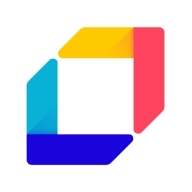

TrendAI Deep Security and Aqua Cloud Security Platform compete in cybersecurity. Aqua seems to have an edge in container security and runtime protection, while TrendAI is favored for hybrid environments.
Features: TrendAI Deep Security provides comprehensive protection with features like virtual patching, application control, and anti-malware. It offers cloud platform integration and a centralized management console for compliance. Aqua Cloud Security Platform excels in container security and runtime protection, featuring image scanning, vulnerability management, and on-demand patching, particularly supporting Kubernetes environments.
Room for Improvement: TrendAI Deep Security could improve its dashboards for better usability and enhance third-party tool integration with improved reporting capabilities. Aqua Cloud Security Platform could benefit from better network visibility, simplified licensing, and improved documentation, including better integration with CI/CD pipelines.
Ease of Deployment and Customer Service: Both TrendAI and Aqua offer extensive deployment options across private, public, and hybrid clouds, with TrendAI excelling in on-premises setups. TrendAI's customer support is generally informed, though some users desire faster responses. Aqua Security's support is flexible, although its documentation could be more comprehensive.
Pricing and ROI: TrendAI Deep Security is considered a costly investment, but its vast feature set is seen as justifying the expense. Some users acknowledge higher costs but recognize ROI through reduced incident management time. Aqua Cloud Security Platform offers flexible pricing adapting to client needs; however, some also find it expensive. Both platforms demonstrate strong ROI, with Aqua's pricing flexibility being noted.
| Product | Market Share (%) |
|---|---|
| TrendAI Deep Security | 7.7% |
| Aqua Cloud Security Platform | 2.1% |
| Other | 90.2% |

| Company Size | Count |
|---|---|
| Small Business | 6 |
| Midsize Enterprise | 1 |
| Large Enterprise | 10 |
| Company Size | Count |
|---|---|
| Small Business | 37 |
| Midsize Enterprise | 24 |
| Large Enterprise | 47 |
Aqua Security stops cloud native attacks, preventing them before they happen and stopping them when they happen. Dedicated cloud native threat research and the most loved cloud native security open source community in the world put innovation at your fingertips so you can transform your business. Born cloud native, The Aqua Platform is the most integrated Cloud Native Application Protection Platform (CNAPP), securing from day one and protecting in real-time. Aqua has been stopping real cloud native attacks on hundreds of thousands of production nodes across the world since 2015.
Aqua Security Features
Aqua Security has many valuable key features. Some of the most useful ones include:
Aqua Security Benefits
There are many benefits to implementing Aqua Security. Some of the biggest advantages the solution offers include:
Reviews from Real Users
Lizeth Z., Cloud Security Specialist at Telstra, says, “Aqua Security is the most advanced solution in the market for container security. Aqua Security allows us to check for vulnerabilities in the CI/CD pipeline, so application teams can remediate issues before going into production. Aqua Security helps us to check the vulnerability of image assurance and check for malware.”
TrendAI Deep Security offers advanced protection with anti-malware, virtual patching, and intrusion prevention. It supports hybrid and cloud environments, providing comprehensive security solutions for large organizations.
TrendAI Deep Security provides a robust suite of features tailored for defending systems against evolving threats. With centralized management, it seamlessly integrates with hybrid and cloud environments. Notable is its virtual patching, which reduces zero-day vulnerability risks and downtime, making it an optimal choice for large corporations seeking extensive protection. Despite challenges like less intuitive dashboards, compatibility, and performance issues during scanning, it excels in server and endpoint protection, intrusion detection, and application control. It's particularly effective in financial sectors and integrates with cloud platforms to automate security policy deployment.
What are TrendAI Deep Security's most significant features?Organizations in sectors like finance deploy TrendAI Deep Security for its virtual patching and hybrid environment support. The solution's adaptability across cloud platforms ensures secure workloads, making it essential for environments requiring robust threat detection and monitoring.
We monitor all Cloud and Data Center Security reviews to prevent fraudulent reviews and keep review quality high. We do not post reviews by company employees or direct competitors. We validate each review for authenticity via cross-reference with LinkedIn, and personal follow-up with the reviewer when necessary.